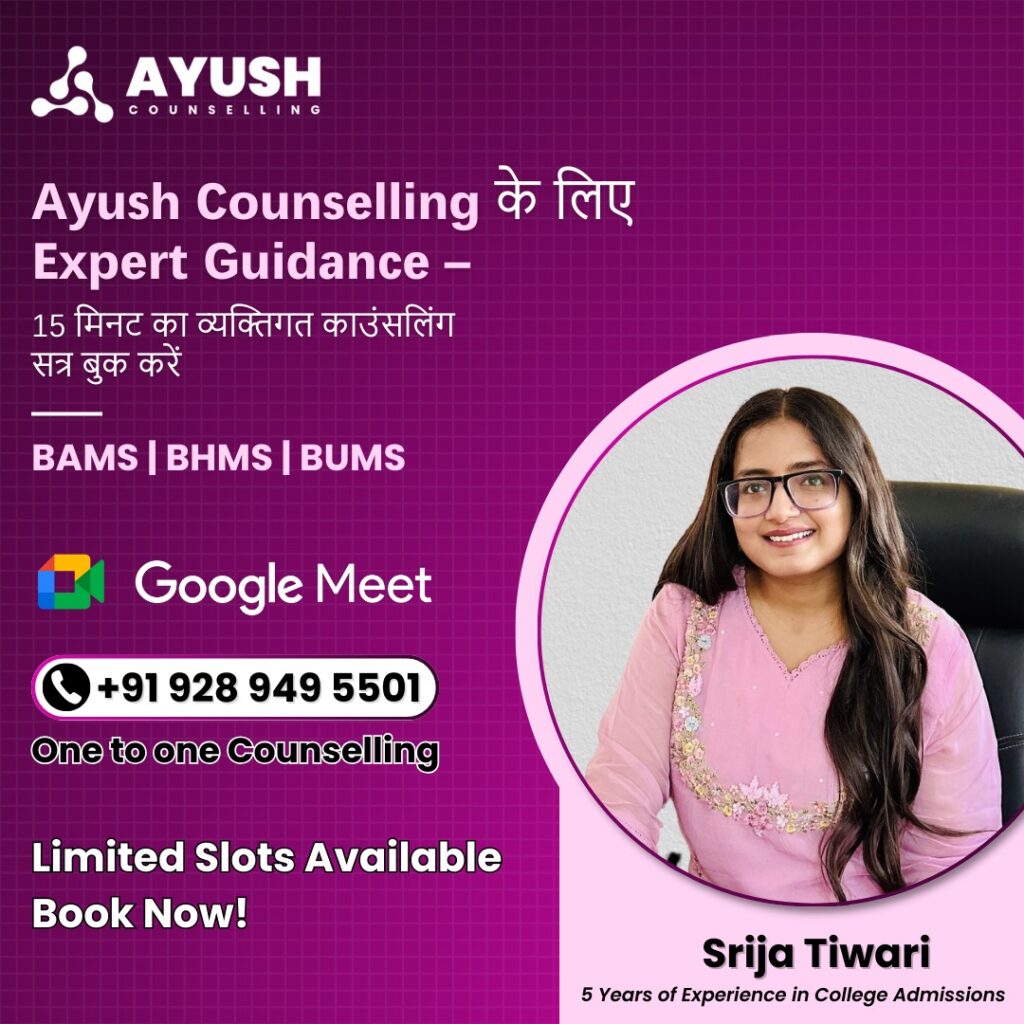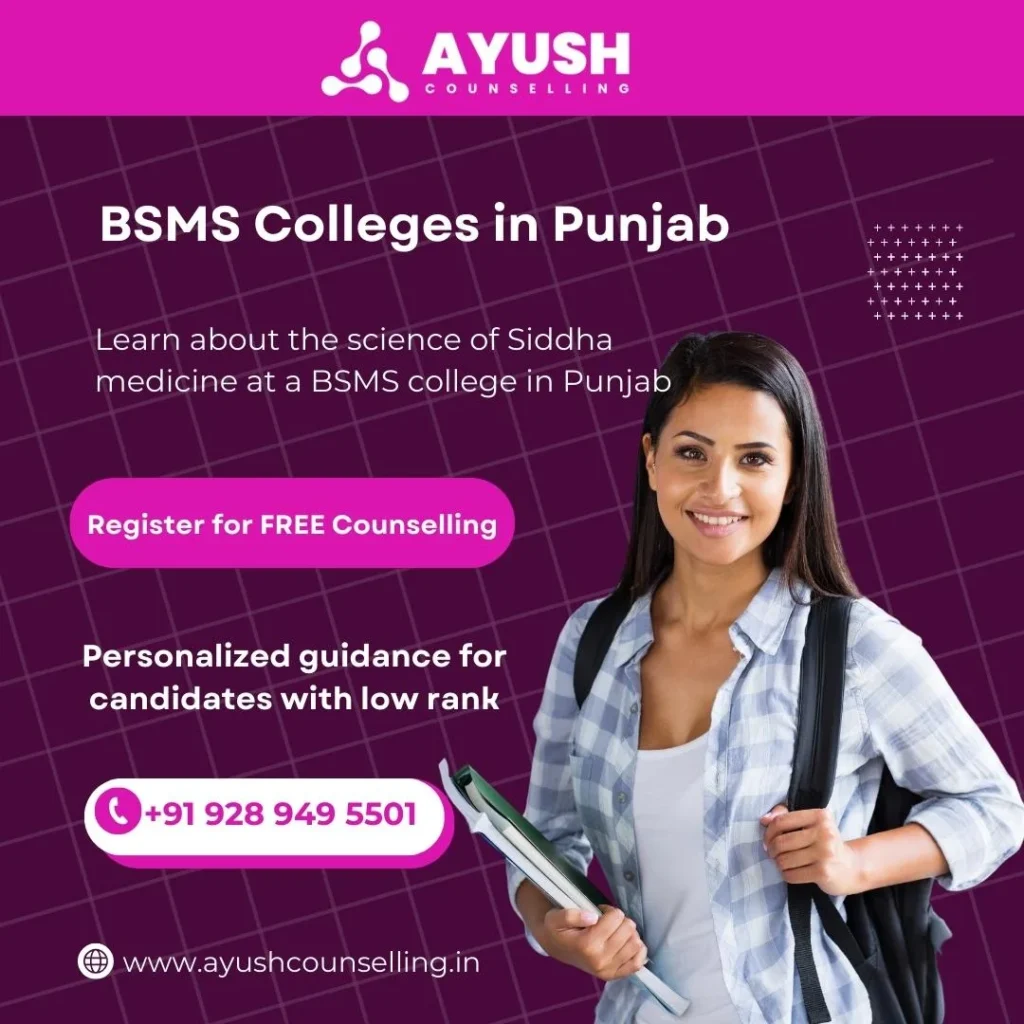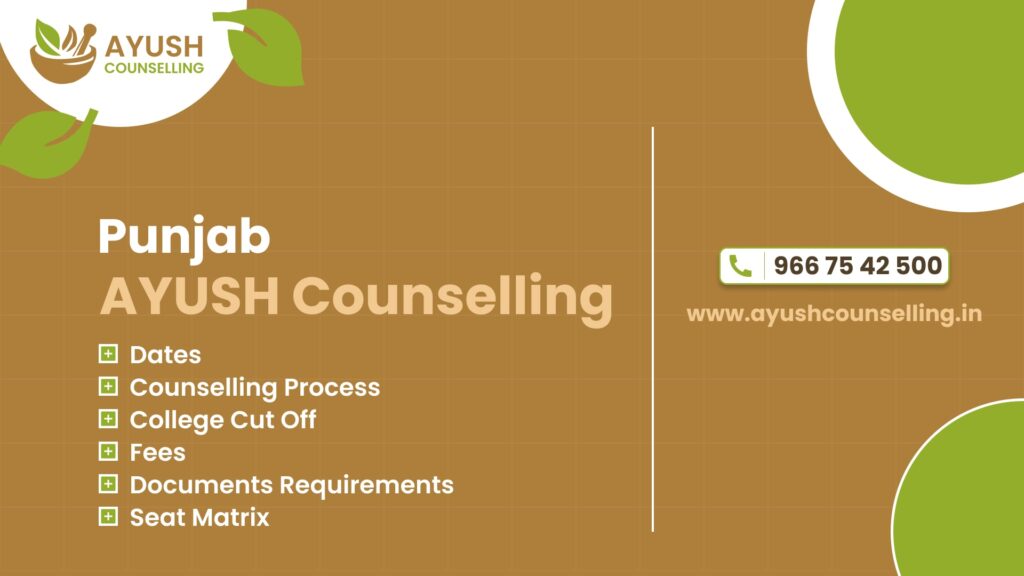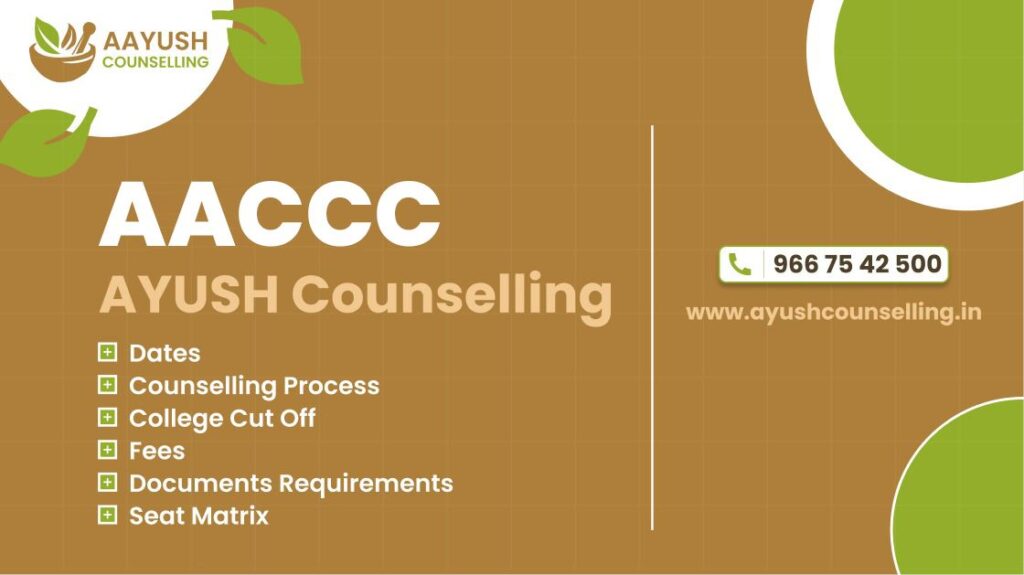BSMS Colleges in Punjab, in the year 2024, stand tall as pillars of medical education, nurturing the dreams of aspiring healthcare professionals. While Siddha colleges are not currently established in Punjab, rest assured that the educational authorities are working diligently to introduce them. Their relentless efforts reflect the profound recognition of the value of traditional healing systems and the potential impact Siddha medicine can have in the state.

The existing BSMS colleges in Punjab offer comprehensive programs in the modern allopathic system of medicine. Equipped with state-of-the-art facilities and experienced faculty, these institutions provide students with a strong foundation in medical education and practical skills.
With a vision to embrace the richness of traditional healing practices, the educational authorities are actively paving the way for Siddha colleges. Their meticulous planning, adherence to regulatory standards, and infrastructure development all contribute to their goal of providing top-quality education in Siddha medicine.

Siddha Medical Information & Detail Summary
Siddha medicine is one of the ancient traditional medical systems that originated in South India, particularly in the Tamil-speaking region. It is considered one of the oldest healing practices in the world, with a history dating back thousands of years. Siddha medicine is based on the principles of Ayurveda, an ancient Indian medical system, and is believed to have been developed by sages and saints who attained enlightenment through rigorous meditation and spiritual practices.
The word “Siddha” is derived from the Tamil word “Siddhi,” which means “perfection” or “attainment.” The practitioners of Siddha medicine are known as Siddhars, and their teachings have been passed down through generations in the form of ancient manuscripts and palm leaf writings.
Central to Siddha medicine is the concept of “Tridosha,” which is the balance of three fundamental energies or humors – Vata, Pitta, and Kapha – within the body. According to Siddha philosophy, an imbalance in these energies leads to diseases, and the goal of treatment is to restore this balance. The remedies used in Siddha medicine include herbal medicines, minerals, metals, and animal products, which are prepared following specific processes to enhance their therapeutic properties.
The Siddha system of medicine also emphasizes the importance of a healthy lifestyle, diet, and spiritual practices in maintaining overall well-being. Practitioners often prescribe yoga, meditation, and specific exercises to promote physical and mental health.
Scope of Siddha Medicine
The scope of Siddha medicine is significant and holds immense potential in the modern healthcare landscape. As an ancient healing system with a rich history and holistic approach to health, Siddha medicine offers unique advantages and opportunities in various aspects:
- Traditional Healthcare Continuation: Siddha medicine has been practiced for centuries and continues to be an integral part of the traditional healthcare system in South India, particularly Tamil Nadu. It plays a crucial role in providing healthcare solutions to a large population, especially in rural and remote areas where traditional medicine remains the primary option.
- Complementary and Alternative Medicine (CAM): Siddha medicine is increasingly gaining recognition as a complementary and alternative medicine system worldwide. Its emphasis on natural remedies, lifestyle modifications, and holistic healing aligns well with the growing demand for integrated healthcare approaches. Many individuals seek Siddha medicine for chronic conditions, minor ailments, and general well-being, especially those looking for natural and non-invasive therapies.
- Treatment of Chronic Diseases: Siddha medicine has shown promise in the treatment of chronic and lifestyle-related diseases, such as diabetes, arthritis, asthma, skin disorders, and gastrointestinal issues. As modern medicine faces challenges in managing chronic diseases, Siddha’s holistic approach to balancing bodily energies and promoting overall health attracts interest as a potential avenue for managing such conditions.
- Herbal and Natural Product Research: Siddha medicine relies heavily on herbal medicines, minerals, and other natural products. This presents a vast opportunity for scientific research and exploration of these remedies’ medicinal properties. The development of evidence-based Siddha medicines can contribute to the discovery of new and effective treatments for various health conditions.
- Integration with Modern Medicine: Siddha medicine’s integration with modern healthcare practices offers a comprehensive approach to patient care. Many medical institutions are exploring ways to combine Siddha remedies with conventional treatments, aiming to improve patient outcomes and expand the range of therapeutic options.
- Global Interest and Awareness: As interest in traditional and alternative medicine grows globally, Siddha medicine is also gaining attention from researchers, practitioners, and healthcare enthusiasts. With increasing awareness about its potential benefits, there is scope for collaborations, cross-cultural exchanges, and international research initiatives.
- Health and Wellness Tourism: India’s traditional healthcare systems, including Siddha medicine, attract health and wellness tourists seeking authentic and holistic healing experiences. This presents economic opportunities for local practitioners and businesses, contributing to the growth of the healthcare tourism industry.
Highlights
| Particular | Undergraduate | Postgraduate |
| Course Name | Siddha (BSMS) | MD/MS (Siddha) |
| Course Level | Undergraduate (UG) | Postgraduate (PG) |
| Duration | 5.5 Years | 3 Years |
| Eligibility | 10+2 with PCB as main subjects | BSMS from a recognized University |
| Average Starting Salary | INR 3-5 Lac | INR 3-6 Lac |
List of BSMS Colleges In Punjab
As per National Commission for the Indian System of Medicine (NCISM) there is no BSMS college in Punjab; however, applicants from the state who wish to pursue a Siddha course can enroll in other state colleges.
NEET Cut-Off
NEET AYUSH Cut Off is the minimum qualifying score that aspiring candidates need to achieve in the National Eligibility cum Entrance Test (NEET) to secure admission in AYUSH (Ayurveda, Yoga and Naturopathy, Unani, Siddha, and Homeopathy) courses.
The cut-off is determined by the regulatory authorities and varies each year based on factors such as the number of applicants and the difficulty level of the exam. It serves as a benchmark for selecting candidates for AYUSH undergraduate and postgraduate programs in various colleges and universities across India. Meeting the NEET AYUSH Cut Off is essential for aspiring students to pursue their dreams of studying AYUSH disciplines and embarking on a career in alternative medicine.
NEET AYUSH Cutoff 2024
| Category | Cut-Off Percentile | NEET Cut-Off 2023 | NEET Cut-Off 2024 | No. Of Candidates |
| UR/EWS | 50th Percentile | 720-137 | 720-164 | 1165904 |
| OBC | 40th Percentile | 136-107 | 163-129 | 100769 |
| SC | 40th Percentile | 136-107 | 163-129 | 34326 |
| ST | 40th Percentile | 136-107 | 163-129 | 14478 |
| UR/EWS-PwD | 45th Percentile | 136-121 | 163-146 | 455 |
| OBC-PwD | 40th Percentile | 120-107 | 145-129 | 270 |
| SC-PwD | 40th Percentile | 120-107 | 145-129 | 55 |
| ST-PwD | 40th Percentile | 120-107 | 141-129 | 11 |
Punjab Ayush Counselling Process

Step 1: Registration
- Visit the official website of Guru Ravidas Ayurved University Punjab at www.graupunjab.org.
- Fill the online registration form carefully within the specified date and time.
- Provide accurate details, including your name, father’s name, course preference, college preference, category, quota, NEET-2024 marks, etc.
- Submit the form and proceed to the next step.
Step 2: Unique Registration ID and Password
- After successful registration, a unique Registration ID (Login ID) and password will be allotted to you.
- You will receive this information on your registered mobile number or email through SMS or email.
- Keep your Registration ID and password confidential and do not share them with anyone.
Step 3: Fill Choices
- Log in to your account using the provided Registration ID and password.
- Click on the “Fill Choices” option.
- Select your preferred course, college name, reservation quota, and reservation type.
- Proceed to the next step after filling in the required fields.
Step 4: Fee Payment
- Deposit the requisite fee through the Payment Gateway using Debit Card, Credit Card, or Net Banking.
- The fee payment options will be available on the website.
- Choose the appropriate payment method and complete the transaction.
Step 5: Counselling Registration
- Only registered candidates are eligible for the counselling process.
- Without registration, candidates will not be allowed to participate in the counselling (online/physical).
- Make sure you have completed the registration process to proceed further.
Step 6: Seat Allotment
- Applicants will be chosen for seat allotment based on their merit, preferences expressed, and seat availability.
- The seat allotment result will be announced on the official website.
- Check the allotment status and proceed to the next step.
Step 7: Reporting and Document Verification
- If you have been allotted a seat, report to the allotted college on the prescribed day.
- Carry the original documents and their photocopies as per the requirements specified by the authorities.
- The college will verify your documents, check your eligibility, and conduct a medical checkup if necessary.
Step 8: Fee Submission
- After the verification of documents and eligibility, you will need to deposit the fee.
- Prepare a demand draft of the required amount in favor of Registrar Guru Ravidas Ayurved University, payable at Hoshiarpur.
- Submit the demand draft to the college as instructed by the authorities.
Step 9: Reporting Procedures
- Follow the reporting procedures specified by the college.
- Submit the required documents and photocopies in accordance with the seat allotment.
- Complete any further formalities or processes as directed by the college.
Punjab Ayush Counselling Document Required
- 10th Certificate.
- 12th Certificate & Mark Sheet.
- NEET UG 2024 Admit Card.
- NEET UG 2024 Result/Scorecard.
- Category Certificate (if applicable).
- Domicile Certificate (for Punjab candidate only).
- Certificate of Sub Category, If Applicable.
- ID Proof (Aadhaar Card/Voter card etc)
BSMS College in India – Admission Process
AYUSH UG counselling refers to the counseling process for undergraduate programs in the field of Ayurveda, Yoga & Naturopathy, Unani, Siddha, and Homeopathy. These programs are collectively known as AYUSH courses and are offered by various colleges and universities in India. The counselling process for AYUSH UG courses is conducted by the respective state and central counseling authorities (AACCC).
The online counselling for the allocation of 15% All India Quota Seats in Undergraduate (BAMS/BUMS/BSMS/BHMS) courses at Government/Government-aided Ayurveda/Siddha/Unani/Homoeopathy Colleges, Deemed Universities (100%), Central Universities/National Institutes is being conducted by the AYUSH Admissions Central Counseling Committee (AACCC) under the Ministry of AYUSH, Government of India. On the other hand, candidates seeking admission through the 85% state quota for AYUSH courses should apply to the respective state counselling authorities.
- AACCC – UG Counselling
- 15% All India Quota UG (BAMS/BUMS/BSMS/BHMS) seats under Govt./Govt. aided institute of all States/ Union Territories.
- 100% UG (BAMS/BUMS/BSMS/BHMS) seats under National/ Central Institutes.
- 100% UG (BAMS) seats under Banaras Hindu University, Varanasi, Uttar Pradesh.
- 50% BUMS seats of AMU, Aligarh, Uttar Pradesh.
- 50% BAMS & BHMS seats of NEIA&H, Shilong, Meghalaya.
- 100% UG (BAMS/BUMS/BSMS/BHMS) seats of all Deemed Universities.
- 100% UG seats (15% All India Quota + 85% Delhi Quota) of ASU & H Institutes under Delhi University as per eligibility conditions provided by the University.
Registration Process
Step 1: Visit the official website. (AACCC)
Step 2: Click on the registration link.
Step 3: Fill in personal details.
Step 4: Enter academic qualifications.
Step 5: Upload required documents.
Step 6: Pay the registration fee online.
Step 7: Submit the form.
Step 8: Receive confirmation or acknowledgement.
AACCC Counselling Process

Round 1: Eligibility for Participation
Only NEET (UG) – 2024 qualified candidates are eligible for AACCC-UG counseling.
Process:
- Register for AACCC-UG Counseling.
- Pay the Counselling Fee (Non-Refundable Registration Fee + Security Deposit Money).
- Fill in and lock your choices.
- The seat allotment list will be published (result).
- Physically report to the allotted college.
Round 2: Eligibility for Participation
- NEET (UG)-2024 qualified candidates who have not registered in the 1st Round.
- Candidates registered in the 1st Round but were not allotted a seat.
- Candidates who opted for free exit in the 1st Round.
- Candidates who joined the allotted seat in the 1st Round and submitted willingness for up-gradation in the 2nd Round.
Process:
- Register for AACCC-UG Counseling (Candidates from the 1st Round need not register again).
- Pay the Counseling Fee (Non-Refundable Registration Fee + Security Money) if not paid already.
- Fill in and lock your choices.
- The seat allotment list will be published (result).
- Physically report to the allotted college.
Round 3/Mop-up Round: Eligibility for Participation
- NEET (UG)-2024 qualified candidates who have not registered in the 1st Round & 2nd Round.
- Candidates who have already registered but were not allotted seats in the 1st Round & 2nd Round.
- Candidates registered in Round 1/Round 2 and availed of Free Exit.
- Candidates who joined the 1st Round allotted seat and submitted willingness for upgradation but did not participate in the 2nd Round of counseling.
- Candidates who joined the allotted seat in the 2nd Round and submitted willingness for up-gradation in the AACCC counseling 3rd Round.
- Candidates who leave/resign the allotted seat in the 2nd Round, with forfeiture of Security money, three days before the commencement of the 3rd Round can participate with payment of complete fees.
Process:
- Register for AACCC-UG Counseling (Candidates from the 1st Round/2nd Round need not register again).
- Pay the Counseling Fee (non-refundable Registration Fee and Security Money if not paid already).
- Fill in and lock your choices.
- The seat allotment list will be published (result).
- Physically report to the allotted college.
Stray Vacancy Round for AIQG/AIQGA/CU/NI
- Seats that remain vacant after the 3rd/Mop-up Round will be filled through the AACCC’s online Stray Vacancy Round.
- Eligibility for Participation:
- All registered candidates who were not admitted to any seats through AACCC-UG counseling or state/UT counseling.
Process:
- No fresh registration in the Stray Vacancy Round.
- Submit willingness in the AACCC-UG portal to participate in the Stray Vacancy Round with an undertaking that you do not hold any UG (ASU&H) seats allotted through AACCC-UG counseling or counseling conducted by State/UTs.
- Option for choice filling is available.
- No upgradation is available from the 3rd/Mop-up Round to the Stray Vacancy Round.
Stray Vacancy Round for Deemed University
- The respective Deemed Universities conduct the Stray Vacancy Round for seat allotment under Deemed Universities.
- AACCC will send a list of eligible registered candidates to Deemed Universities for the Stray Vacancy Round, which will be exercised strictly in order of merit.
- The seats are domicile-free, and only registered AACCC-UG counseling candidates are eligible for admission.
Please note that the process provided is a simplified overview of the AACCC Counselling process. It is recommended to refer to the official AACCC website or relevant sources for more detailed and up-to-date information.
- 10th Certificate.
- 12th Certificate & Mark Sheet.
- NEET UG Admit Card.
- NEET UG Result/Scorecard.
- Category Certificate (if applicable).
- Domicile Certificate (for Manipur candidate only).
- Certificate of Sub Category, If Applicable.
- ID Proof (Aadhaar Card/Voter card etc.)
- Passport size Photograph
- Fee Receipt
Career Opportunities In Siddha Medicine.
Siddha medicine has been very well-known throughout the years due to its advantages and recognition as a traditional and supplementary system of medicine. This has thus increased the number of employment options available to people studying Siddha medicine.
To be qualified to practice Siddha medicine throughout Punjab, a student must register with the State Council of Tamil Nadu Medicine or Central Council of Tamil Nadu Medicine after completing their Bachelor of Siddha Medicine and Surgery (BSMS) degree.
- Through the Punjab Public Service Commission, a Siddha doctor with a BSMS degree can obtain a position in government hospitals and Primary Healthcare Centers (PHC). Additionally, the Central Government Health Scheme (CGHS) provides for appointments, with Siddha graduates being appointed as Medical Officers.
- For Siddha graduates, several positions at various levels are also open within the Central Council for Research in Siddha (CCRS), National Institute of Siddha, and Central Council of Tamil Nadu Medicine.
- In its Tamil Nadu medicine dispensaries, the Punjab government offers Siddha doctors employment chances as well.
- Siddha doctors have several options in the fields of private clinical practice, teaching profession in private medical colleges, pharmacy industries, and research units as a result of the public’s awareness and appreciation of the Siddha system of medicine.
Frequently Asked Questions
How many BSMS Colleges are in India?
There are a total of 13 BSMS colleges in India.
How many Government BSMS Colleges are in Punjab?
There are a no Government college available in Punjab.
How many Siddha colleges are there in Punjab?
There are no Siddha colleges in Punjab Offering BSMS Courses.
How many Private BSMS Colleges are in Punjab?
There are no Private BSMS colleges in Punjab .
What is the Fee for the BSMS Course in India?
The average tuition fees for a Bachelor of Homeopathic Medicines and Surgery (BSMS) degree in India range from Rs. 1 Lakh to Rs. 5 Lakh with higher fees if studying abroad.
